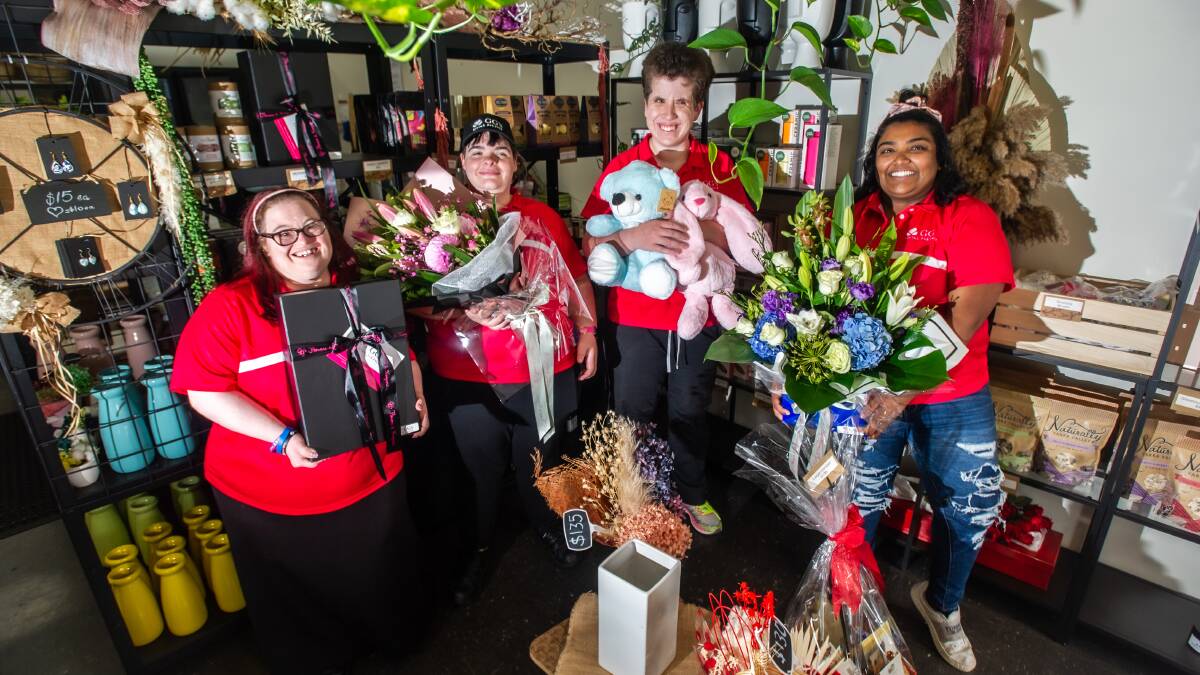
The pandemic has put many of Canberra's businesses under the pump to rethink their models, but the co-founder of GG's Flowers said this period had only reinforced what's core to the business.
"Making sure that we have engaged staff and really trying to give [them] a really great workplace in which they can grow, is going to be really important," said Nip Wijewickrema, co-founder of the business.
"Because at the end of the day our business doesn't exist without our staff, so holding on to them is kind of the forefront of our priorities."
The Farrer florist is a business and an NDIS provider, and is staffed by people with special needs.
Supporting staff as cases of the Omicron variant of COVID-19 increased has been difficult, with the business buying $6000 worth of rapid antigen tests for surveillance testing.
While GG's has a solid community support base, Ms Wijewickrema said it had been a slow start to the year, with the Omicron variant flattening revenue which had appeared stable at earlier stages.
Valentine's Day emphasised that change to Ms Wijewickrema.
"Normally the city is our biggest run ... but with everyone working at home, no one chose to get deliveries to workplaces.
"Instead of ordering at all, they just went out for dinner, or they went out for lunch. They weren't getting [flowers] delivered to their house."
Ms Wijewickrema said Canberra's lockdown between August and October last year provided opportunities for her business to grow.
"Because no one could go to restaurants and bars, and people were actually spending more ... and so we were doing really well," she said.
"We were selling flowers and gift hampers left, right and centre, and we were becoming very successful."
That trading boost has dropped off as people were allowed to celebrate in-person together once more, leaving Ms Wijewickrema and many small business owners hoping for financial support.
"For the whole of January, I prayed every day that they would put us into lockdown, because there will be financial incentives," she said.
"Because I was having such a hard time: my clients weren't coming, therefore, my staff had no work. But they were relying on us to pay their mortgages."
Many staff who were required to isolate had no access to financial support, leaving people in distress.
The federal government does offer support in the form of pandemic leave disaster payments for people who lose work due to COVID exposures, but anyone who has liquid assets of more than $10,000 is ineligible
"That happened to a lot of our staff. A lot of staff they're uni students ... and they're saving up for houses, and they couldn't qualify for financial assistance," Ms Wijewickrema said.
"[If you get COVID] in a high-risk setting, you need to be away for 10 days, so you have to take leave for almost two weeks. And people don't have that much sick leave, and there's no financial incentive. So that was what crippled us ... that was probably the hardest part."
While the business had taken a hit, it was clambering to regain lost ground.
"Had COVID not happened, our business would be a whole different, profitable kettle of fish. But obviously now we're still two years later, really trying very hard to kind of regain our wings," Ms Wijewickrema said.







